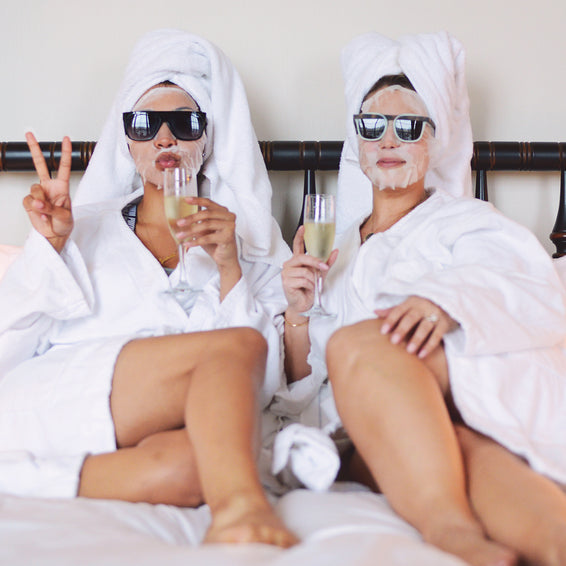Retinoids: The Secret to Glowing, Youthful Skin

Retinoids are a family of skincare ingredients derived from vitamin A, known for their transformative effects on the skin. They work by regulating cell turnover, which means they help the skin shed old, dead cells and replace them with fresh, new ones. This process is key to addressing many skin concerns, from acne to signs of aging. When you hear the term "retinoid," it encompasses all forms of vitamin A derivatives, including retinol, which is one of the most common and widely used in over-the-counter (OTC) skincare products.
What is Retinol?
Retinol is a specific type of retinoid, and it’s often found in skincare products to target fine lines, wrinkles, uneven texture, and acne. It works by increasing cell turnover, which helps to smooth the skin's surface and boost collagen production. Unlike stronger prescription retinoids, retinol is gentler and more suitable for regular use, making it a popular choice for those seeking anti-aging or acne treatment without needing a prescription.
Common Side Effects and Considerations
One of the key things to remember when incorporating retinol into your skincare routine is that, while effective, it can also cause some temporary side effects, especially when you first start using it. Common reactions include redness, dryness, and increased skin sensitivity. For those with sensitive skin, these effects can be more pronounced, making it essential to introduce retinol gradually.
At Joanna Vargas, I always recommend starting with a low concentration of retinol and using it sparingly—once a week is enough to begin with. This allows your skin to build tolerance and minimizes the risk of irritation. After two weeks, you can increase usage to twice a week, then gradually work up to three times a week, or more frequently, depending on how your skin responds.
Retinol Alternatives: Is Bakuchiol Effective?
Bakuchiol is often touted as a natural alternative to retinol. While it's a great ingredient with antioxidant and anti-inflammatory properties, it’s not quite as potent as retinol when it comes to stimulating cell turnover and boosting collagen. If you have extremely sensitive skin or prefer a more natural approach, bakuchiol could be a suitable option. However, for those looking for maximum results, using a retinol serum even once a week might be more effective than using bakuchiol nightly.
How to Minimize Retinol Side Effects
To minimize the side effects of retinol, one of the best approaches is to layer it with a hydrating moisturizer. This creates a buffer between the retinol and your skin, reducing potential irritation. Additionally, you can alternate retinol with other soothing products like hyaluronic acid serums or nourishing creams to ensure your skin stays hydrated and balanced.
For an advanced retinol treatment, I recommend my Supernova Serum. It's designed to deliver the anti-aging benefits of retinol without the harsh side effects. The formula includes hydrating and soothing ingredients to counterbalance retinol’s potency, making it suitable for even the most sensitive skin types. With regular use, you'll notice smoother skin texture, a reduction in fine lines, and a radiant, youthful glow.
Remember, consistency is key. Start slowly, and over time, your skin will thank you with a brighter, more youthful complexion.






